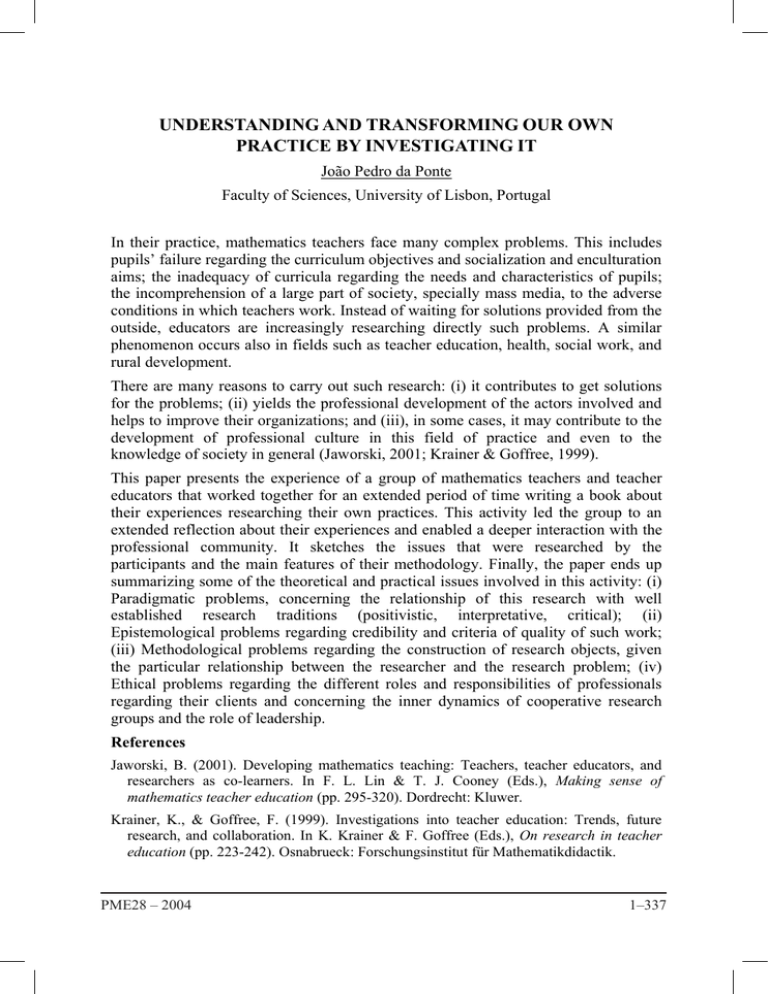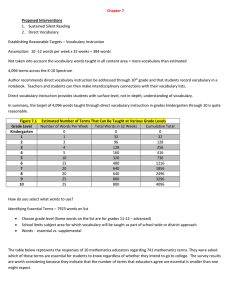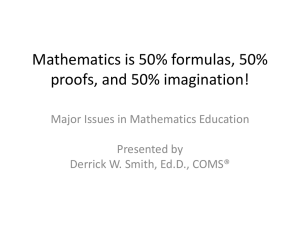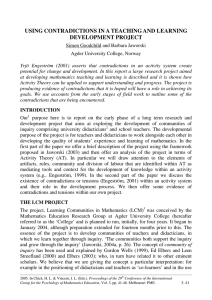UNDERSTANDING AND TRANSFORMING OUR OWN PRACTICE BY INVESTIGATING IT
advertisement

UNDERSTANDING AND TRANSFORMING OUR OWN PRACTICE BY INVESTIGATING IT João Pedro da Ponte Faculty of Sciences, University of Lisbon, Portugal In their practice, mathematics teachers face many complex problems. This includes pupils’ failure regarding the curriculum objectives and socialization and enculturation aims; the inadequacy of curricula regarding the needs and characteristics of pupils; the incomprehension of a large part of society, specially mass media, to the adverse conditions in which teachers work. Instead of waiting for solutions provided from the outside, educators are increasingly researching directly such problems. A similar phenomenon occurs also in fields such as teacher education, health, social work, and rural development. There are many reasons to carry out such research: (i) it contributes to get solutions for the problems; (ii) yields the professional development of the actors involved and helps to improve their organizations; and (iii), in some cases, it may contribute to the development of professional culture in this field of practice and even to the knowledge of society in general (Jaworski, 2001; Krainer & Goffree, 1999). This paper presents the experience of a group of mathematics teachers and teacher educators that worked together for an extended period of time writing a book about their experiences researching their own practices. This activity led the group to an extended reflection about their experiences and enabled a deeper interaction with the professional community. It sketches the issues that were researched by the participants and the main features of their methodology. Finally, the paper ends up summarizing some of the theoretical and practical issues involved in this activity: (i) Paradigmatic problems, concerning the relationship of this research with well established research traditions (positivistic, interpretative, critical); (ii) Epistemological problems regarding credibility and criteria of quality of such work; (iii) Methodological problems regarding the construction of research objects, given the particular relationship between the researcher and the research problem; (iv) Ethical problems regarding the different roles and responsibilities of professionals regarding their clients and concerning the inner dynamics of cooperative research groups and the role of leadership. References Jaworski, B. (2001). Developing mathematics teaching: Teachers, teacher educators, and researchers as co-learners. In F. L. Lin & T. J. Cooney (Eds.), Making sense of mathematics teacher education (pp. 295-320). Dordrecht: Kluwer. Krainer, K., & Goffree, F. (1999). Investigations into teacher education: Trends, future research, and collaboration. In K. Krainer & F. Goffree (Eds.), On research in teacher education (pp. 223-242). Osnabrueck: Forschungsinstitut für Mathematikdidactik. PME28 – 2004 1–337




